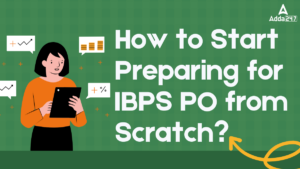
As we all know SBI PO is here and we are here to help you by providing daily reasoning quizzes on new pattern questions with different topics that will help you to go through this exam.
So, here we are with the Revision of the Week.
Directions (1-5): Study the following information carefully and answer the questions given below.
Eight boxes namely P, R, S, T, U, M, N and O are placed from top to bottom but not necessarily in the same order. They contain different types of books among Hindi, English, Sanskrit, Math, Science, Physics, Chemistry and Civics. Boxes are of different colours among red, green, black and yellow colour. Exactly two boxes are there of each colour. Consider top as 1st position and so on. The following information is known about them. There is gap of one box between the box T which is green colour and box R and both are in the top 4 positions when boxes are arranged from top to bottom. The box containing Math book is kept immediately below black colour box and is of same colour as T. Box S is kept somewhere between N and O. Box O is below S. The two yellow boxes are kept vertically adjacent to each other. Sanskrit book is kept exactly between M and the box containing Physics book. O doesn’t contain Hindi book. There is gap of one box between the box U and box N, which is kept immediately below the box containing Math book. Box U is below the box N. The box containing Civics book is placed at even numbered place but is not placed at the bottom. The red colour box which is kept at top either contains Hindi or Chemistry book. Box U is not of yellow colour. Box M which contains Science book is of black colour. The box containing English book is of black colour. S doesn’t contain any of Hindi or Civics book.
Q1.Which box contains English book?
(a) P
(b) R
(c)T
(d)O
Q2.Which box is of black colour?
(a)S
(b)O
(c)U
(d)P
(e)T
Q3.Which box is placed at top?
(a)The box which contains Chemistry book
(b)R
(c)U
(d)O
(e)P
Q4. Which box is placed at 8th position?
(a)P
(b)R
(c)S
(d)O
(e)T
Q5. Which subject book does box N contain?
(a)Chemistry
(b)Physics
(c)Sanskrit
(d)Math
(e)Civics
Directions (6-10): Study the information and answer the following questions:
In a certain code language
“still water boat stream” is coded as “ 32@VZ 22@LZ 41#ZV 31#R”
“time and work problem” is coded as “34@L 29#LV 5#Z 25@RV”
“simple compound interest question” is coded as “ 24@RV 31@FVRL 7@LLF 29@RVV”
“data interpretation is necessary” is coded as “5@ZZ 23@RVVZRL 28@R 39#VVZ”
Q6.What is the code for ‘Percentage’ in the given code language?
(a)21@VVZV
(b)21#VVZV
(c)21@ZVVZ
(d)21#ZVVZ
(e)None of these
Q7.What is the code for ‘Ratio Proportion’ in the given code language?
(a)33@ZL 30#LLRL
(b)33#ZRL 30@LLRL
(c) 33#LZ 30#LLRL
(d)33#ZL 30#LRLR
(e)None of these
Q8.If the code for “time and distance” is “ 25@RV 9@RZV 5#Z” then what is the code for “ train distance”?
(a) 9@RZV 34#RZ
(b) 9@RZV 34@ZR
(c) 9@VZR 34#ZR
(d) 9@RZV 34#ZR
(e)None of these
Q9.What may be the possible code for ‘Mixture Alligation’ in the given code language?
(a) 18@FVR 20#ZRZRL
(b) 18@VRF 20#ZRZRL
(c) 18#RFV 15@ZRZRL
(d) 18@RFV 20@ZRZRL
(e)None of these
Q10.What is the code for ‘University’ in the given code language?
(a)46@FRVR
(b)46#FRVR
(c) 46@FRRV
(d) 46#RVVF
(e)None of these
Directions (11-13): In the following questions, δ, @, ©, % and * are used with the following meanings as illustrated below:
‘P © Q’ means ‘P is not smaller than Q.’
‘P % Q’ means ‘P is neither smaller than nor equal to Q.’
‘P * Q’ means ‘P is neither greater than nor equal to Q.’
‘P δ Q’ means ‘P is not greater than Q.’
‘P @ Q’ means ‘P is neither greater than nor smaller than Q.’
Now, in each of the following questions assuming the given statements to be true, find with of the four conclusions I, II, III and IV given below them is/are definitely true and give your answer accordingly.
Q11. Statements: P δ Q, Q @ X, X © Y, Y % Z
Conclusions
I. X @ P
II. X % P
III. Z * Q
IV. Y δ Q
(a) Either I or II is true
(b) III and IV are true
(c) Either I or II and III are true
(d) Either I or II and IV are true
(e) Either I or II and III and IV are true
Q12. Statements: P @ Q, Q δ R, R % S, S © T
Conclusions
I. T * R
II. R © P
III. Q * P
IV. P δ T
(a) I and II are true
(b) I, II and III are true
(c) II, III and IV are true
(d) All are true
(e) None of these
Q13. Statements: P * Q, Q % R, R @ S, S δ T
Conclusions
I. P * R
II. S * P
III. R @ T
IV. T % R
(a) None is true
(b) Only III is true
(c) Only IV is true
(d) Either III or IV is true
(e) Either III or IV and II are true
Q14. Which of the following symbols should be placed in the blank spaces respectively (in the same order from left to right) in order to complete the given expression in such a manner that makes the expression A > B as well as C ≤ D definitely true?
A _ D _ E _ B _ C
(a) =, =, ≥, ≥
(b) >, ≥, =, >
(c) >, <, =, ≤
(d) >, =, =, ≥
(e) >, =, ≥, >
Q15. Which of the following symbols should be placed in the blank spaces respectively (in the same order from left to right) in order to complete the given expression in such a manner that makes the expression P > Q and R > S definitely false?
P _ T _ R _ Q _ S
(a) <, <, >, =
(b) <, =, =, >
(c) <, =, =, <
(d) ≥, =, =, ≥
(e) >, >, =, <



 GA Capsule for SBI Clerk Mains 2025, Dow...
GA Capsule for SBI Clerk Mains 2025, Dow...
 The Hindu Review October 2022: Download ...
The Hindu Review October 2022: Download ...
 How to Start Preparing for IBPS PO from ...
How to Start Preparing for IBPS PO from ...





